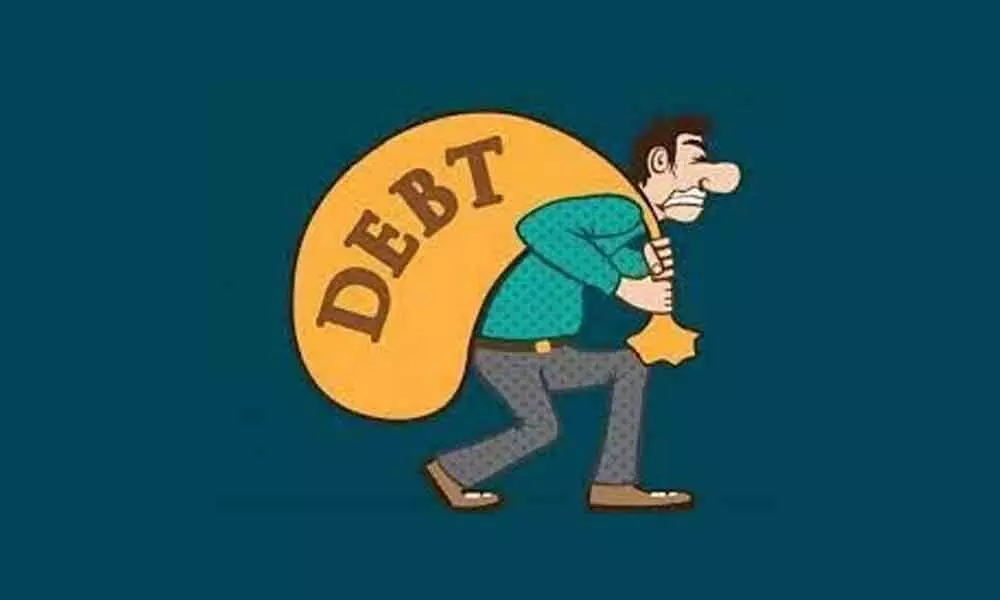Borrowing for consumption imprudent

Borrowing for consumption imprudent
The Covid pandemic led to a decline of our GDP by about 8% last year. The tax revenue of government declined in tandem.
The Covid pandemic led to a decline of our GDP by about 8% last year. The tax revenue of government declined in tandem. However, its expenditure was not only maintained but it increased. As a result, the gap between the income and the expenditure of the government increased. This led the government borrow large amounts of money. Normally, heavy borrowing is frowned upon by international investors. However, the present international consensus is that the normal rules of fiscal management do not apply in situations such as the present pandemic. This is just as a sick person selling his family silver to undergo a heart surgery. Of what use is silver if he does not live? Similarly, in situations such as the present pandemic, the government is justified in borrowing more money to tide over the immediate difficulties.
However, borrowing today imposes a tax on future generations. The money borrowed today is used for consumption today; but it has to be repaid by our future generations. The government has two options to avoid making such intergenerational injustice. It can impose high taxes today; or it can reduce its expenditures today. It imposes tax on the present generation for raising additional revenues for facing the pandemic faced by the present generation – perhaps due to its own folly.
The second dimension of fiscal deficit is the use of the borrowed money. It can be used in two ways. This can be explained with the example of a businessperson. A businessperson can borrow money to put up a factory. In this case, the factory would produce goods, the businessperson would make profits in future and he/she could repay the interest and the principal out of those future earnings. In such situation the businessperson would not impose any burden on the future generations of his family. Such borrowing is good because it enables the family to grow at a faster pace than if he/she had not borrowed an invested. Say, a businessperson has an income of Rs 1,00,000. She can borrow Rs 3,00,000 and put up a factory of Rs 4,00,000 instead of putting up a factory of only Rs 1,00,000. The higher income from the investment of Rs 4,00,000 could be used to repay the interest and the principal. This would be a happy circumstance. On the other hand, if a businessperson borrows money and goes on a foreign luxury visit or buy a property for making for high-fi office, then there would accrue no additional income. She would have to pay interest and principal in future out of the income from the lesser investment of Rs 1,00,000. Her income would be less in the future.
The same logic applies to government borrowing. The future income of the country is more if the government borrows money for making, say, a highway. First of all, demand is generated for cement, steel and machines. The producers of cement, steel and machines pay taxes such as the GST to the Government. Secondly, employment is generated in the production of cement etc. as well as the highway. The workers, in turn, buy goods from the market and that leads to an increase in demand. Third, the highway enables the goods to reach the destination quicker and at a lower cost. The cost of goods in the market is less and the economy is speeded. There is more productive activity. The government gets more taxes and it can repay the loan with these additional taxes. On the other hand, if the government borrows and buys, let us say, Rafale fighter jets, then the demand is generated in France. The geopolitical benefits of Rafale jets do not cancel the economic costs. Or, if the government uses the borrowed money to pay increased salaries to the government servants, then the demand is substantially generated in buying gold, investing in foreign properties, etc. because the consumption needs of the government servants is already met with their current incomes. Such expenditures do not generate additional taxes for the government with which the loans could be repaid. The revenues of the government remain stagnant while the burden of interest and repayment of the principal leads to a decline of income in the future.
Therefore, two questions are involved in the present fiscal policy. First, whether the government is justified in borrowing and shifting burden upon future generations instead of imposing taxes on the present generation. Second, whether the government has used the borrowed money for productive investment or for increasing government consumption.
In the present situation, the Government of India has borrowed instead of imposing taxes. It could have imposed higher taxes, especially on imports. Higher import taxes on oil, coal, Swiss chocolates and other goods would have led to higher revenues. The price of these goods would have increased and consumption would have declined. That would create some negative effect. The electricity would have become expensive due to higher import taxes on imported coal. People would have used less electricity. However, there would be no consequence on future generations. The present difficulties would have been managed by reduced consumption of the present generation.
Secondly, the borrowing during the pandemic has mainly been used to maintain government consumption—statues, new parliament house and salaries of the government servants. The capital expenditures in the present year 2021-22 have been increased by a meagre Rs 1,15,000 crores. However, at the same time the receipts from the sale of capital assets increased by Rs 1,42,000 crore. Therefore, the increase in investments are being made from the sale of capital assets and not from the borrowings. The money borrowed is being used wholly for government consumption.
It is unfortunate that the government has ignored the consequence of this borrowing on future generations and borrowed heavily for maintaining its consumption which will impact the growth of the country in the coming time and will delay the Government's objective of making India into a 5 trillion dollar economy.
(The author is former Professor of Economics at IIM, Bengaluru)
(The opinions expressed in this column are those of the writer. The facts and opinions expressed here do not reflect the views of The Hans India)










